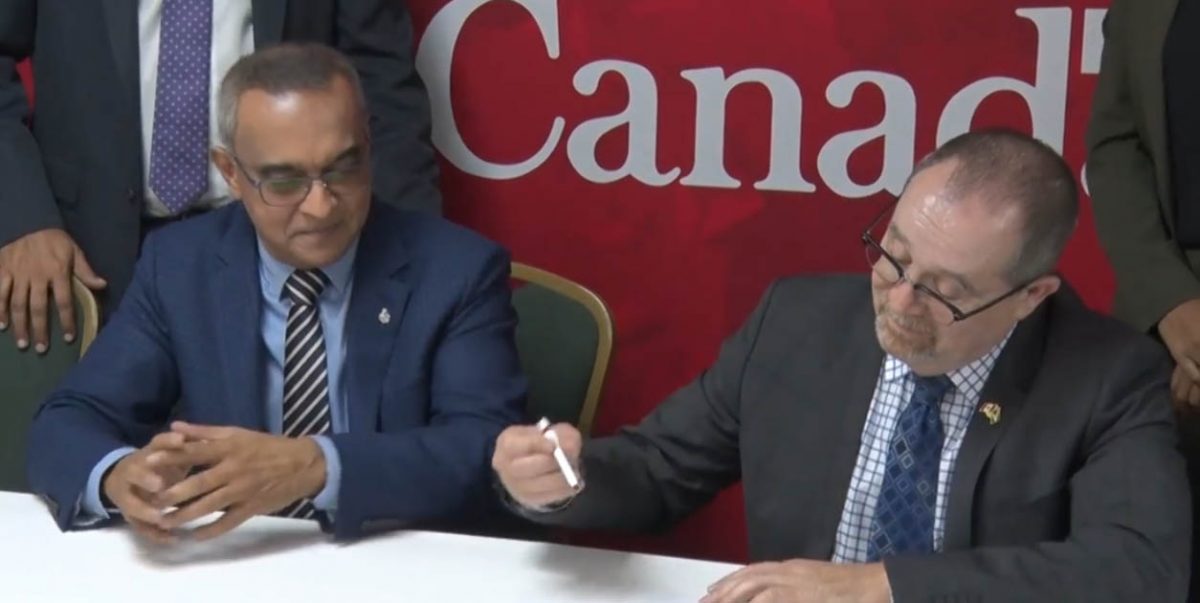The $386 million project being funded by Global Affairs Canada to improve maternal and neonatal care in Guyana’s hinterland regions will be bridging a critical gap in the healthcare sector for rural areas, according to Dr Narendra Singh, a professor at McMaster University.
The project was launched on Tuesday by the Canadian High Commission to Guyana. It will be executed by the McMaster University and will last for five years. The main objective of the project is to reduce mortality rates among women of childbearing age, newborns and children under five years old in Regions One, Seven, Eight and Nine.
During brief remarks at the launch, Singh noted that due to the “gross discrepancy” between rural and urban areas in Guyana, a baby born in Lethem does not have the same chance of survival as one born at the Georgetown Public Hospital.
“That is why we are here today – because of that gross discrepancy between the rural and urban areas. I am humbled by the trust that has been bestowed on me, us, to try and work on that discrepancy,” he said.
Singh revealed that it was only by chance during a visit twelve years ago that he found out that the under-five mortality rate in Guyana was extremely high – higher than Trinidad, Jamaica as well as Barbados. Further research showed that 75 percent of the 90 percent of under-five deaths occurred because babies were dying at less than 28 days of age.
A partnership was established with the Ministry of Health, the GPH, and the University of Guyana to build the maternal and neonatal healthcare capacity in the country. A paediatric post-graduate residency programme was established, which has thus far trained 23 paediatricians as well as 70 Neonatal Intensive Care Unit (NICU) nurses around the country. According to Singh, the team was also able to elevate the standard of neonatal care at the GPH and build ICUs in areas where none existed.
“What we found was that training nurses, providing lifesaving equipment caused a precipitous drop in the neonatal mortality rate at the Georgetown Public Hospital; but there still exists a discrepancy between GPH and the hinterland,” he said.
The project will provide for the training of staff, family health planning programmes, equipment procurement and outreaches to rural clinics.









